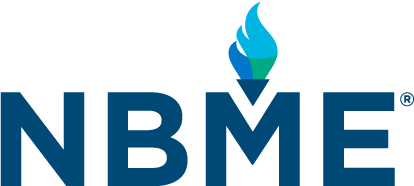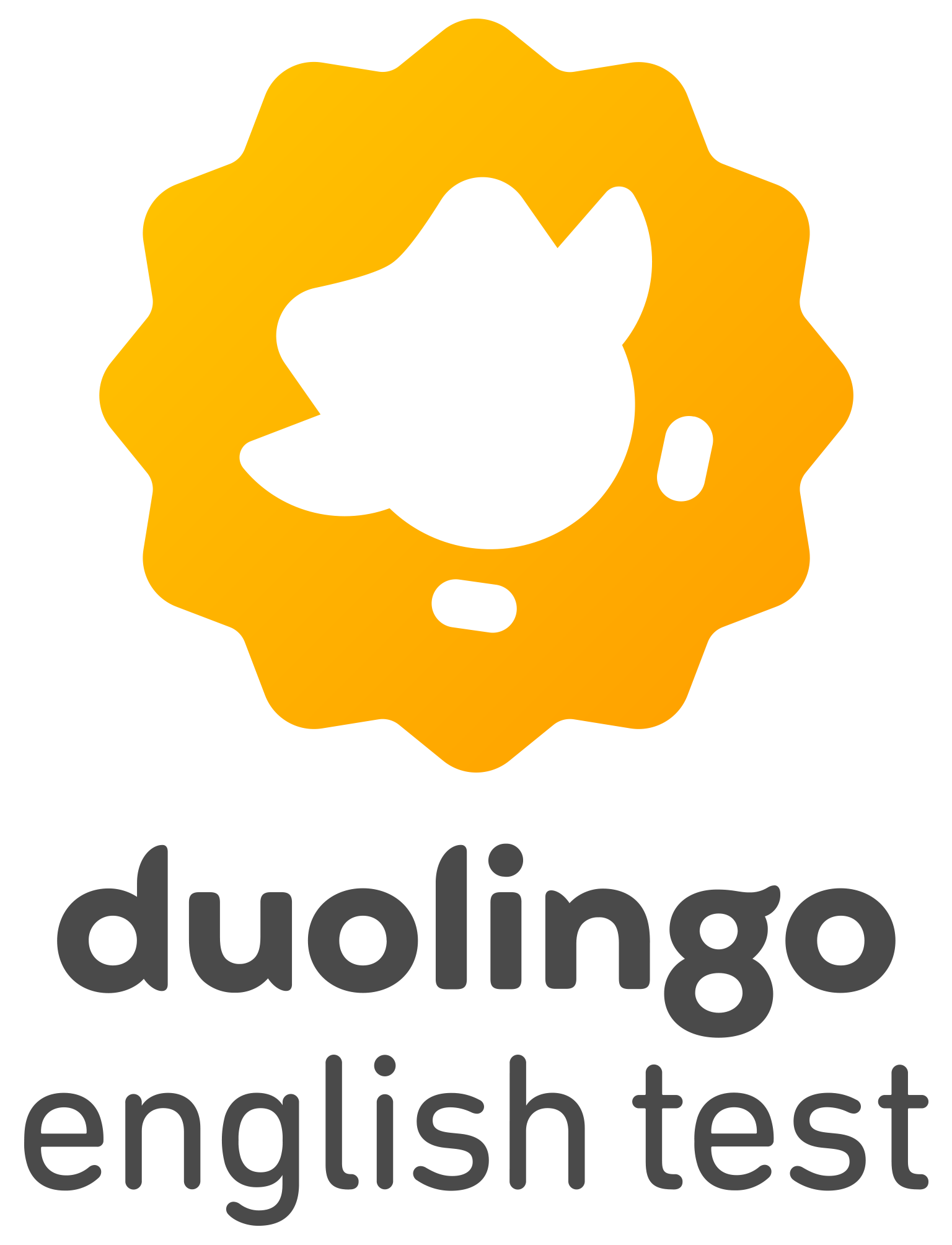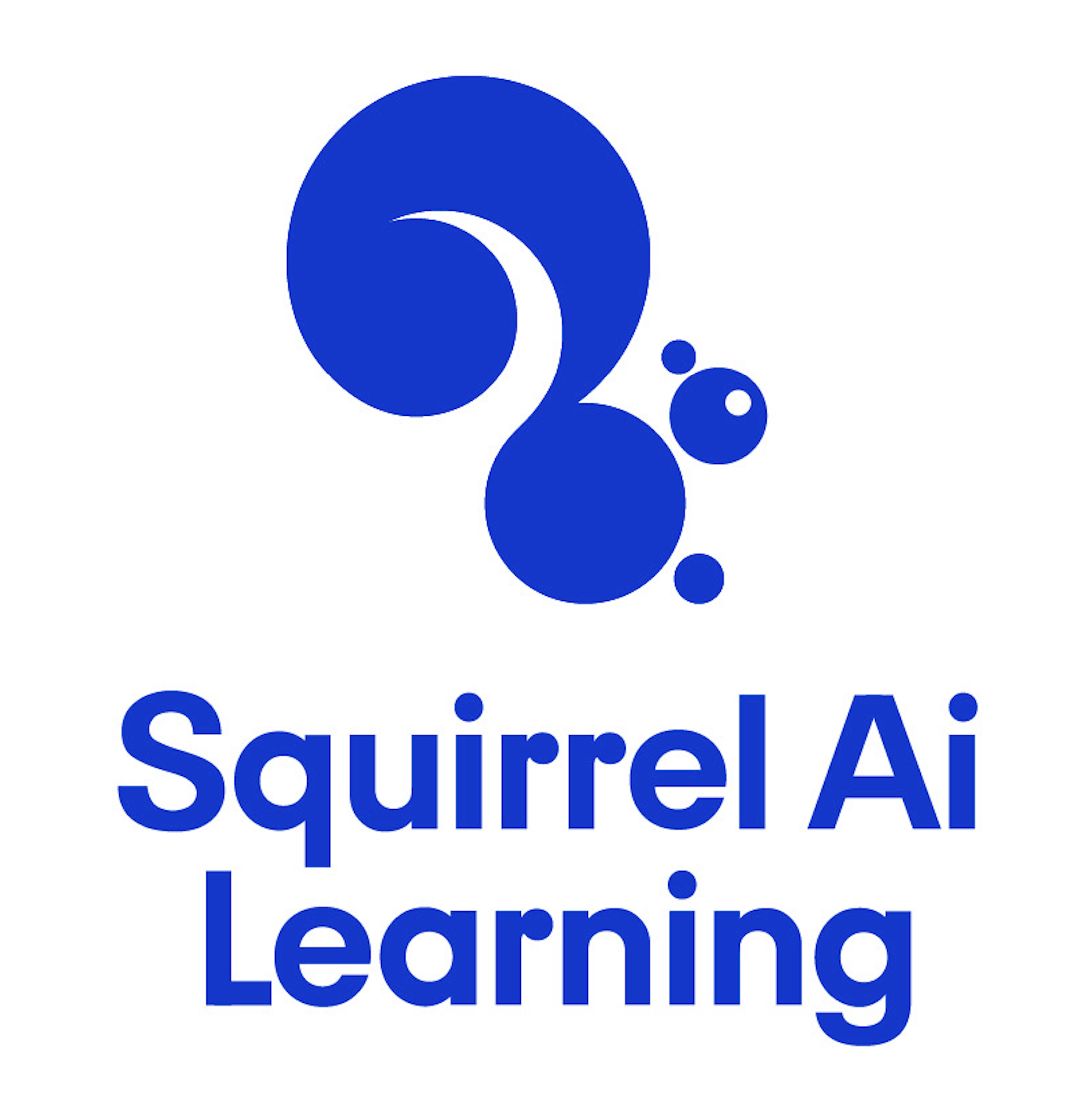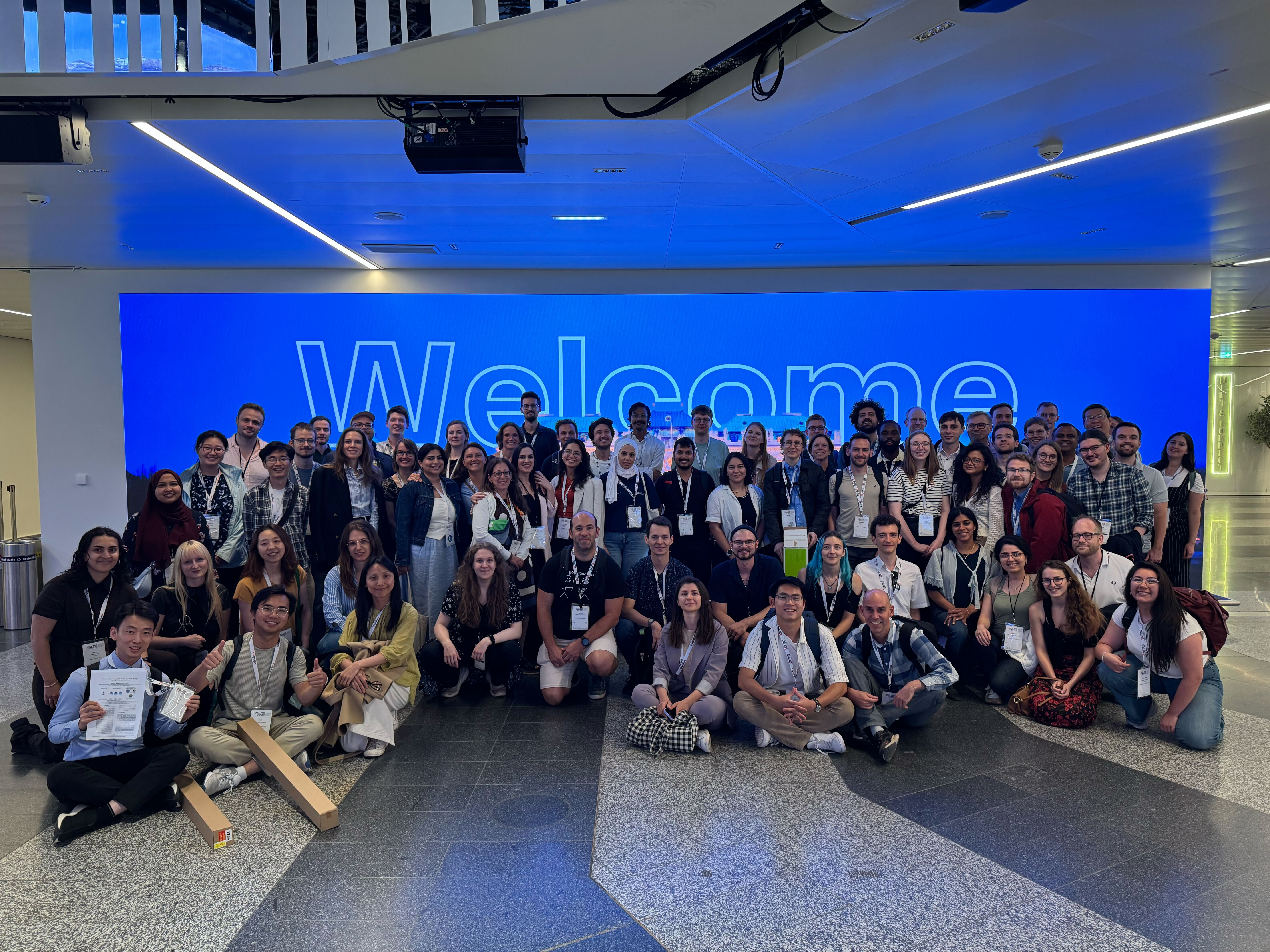20th Workshop on Innovative Use of NLP for Building Educational Applications
| Quick Info | |
|---|---|
| Co-located with | ACL 2025 |
| Location | Vienna, Austria |
| Deadline | |
| Dates | July 31 and August 1, 2025 |
| Organizers | Ekaterina Kochmar, Bashar Alhafni, Marie Bexte, Jill Burstein, Andrea Horbach, Ronja Laarmann-Quante, Anaïs Tack, Victoria Yaneva, Zheng Yuan |
| Contact | bea.nlp.workshop@gmail.com |
| Proceedings | https://aclanthology.org/volumes/2025.bea-1/ |
| GitHub | To share your code and data with the BEA community, feel free to use the #bea-workshop topic. |
Description
The BEA Workshop is a leading venue for NLP innovation in the context of educational applications. It is one of the largest one-day workshops in the ACL community with over 100 registered attendees in the past several years. The growing interest in educational applications and a diverse community of researchers involved resulted in the creation of the Special Interest Group in Educational Applications (SIGEDU) in 2017, which currently has over 400 members.
The workshop’s continuing growth reflects how technology is increasingly fulfilling societal demands. For instance, the BEA16 workshop in 2021 hosted a panel discussion on “New Challenges for Educational Technology in the Time of the Pandemic” addressing the pressing issues around COVID-19. Additionally, NLP has evolved to aid diverse learning domains, including writing, speaking, reading, science, and mathematics, as well as the related intra-personal (e.g., self-confidence) and inter-personal (e.g., peer collaboration) skills. Within these areas, the community continues to develop and deploy innovative NLP approaches for use in educational settings.
Another significant advancement in educational applications within the Computational Linguistics (CL) community is the continuing series of shared-task competitions organized by and hosted at the BEA workshop. Over the years, this initiative has included four dedicated tasks focused solely on grammatical error detection and correction. Moreover, NLP/Education shared tasks have expanded into novel research areas, such as the Automated Evaluation of Scientific Writing at BEA11, Native Language Identification at BEA12, Second Language Acquisition Modeling at BEA13, Complex Word Identification at BEA13, Generating AI Teacher Responses in Educational Dialogues at BEA18, and Automated Prediction of Item Difficulty and Item Response Time and Multilingual Lexical Simplification at BEA19. These competitions have significantly bolstered the visibility and interest in our field.
The 20th BEA will be the first edition of BEA as a 2-day workshop. It will adopt the same format as the 2024 edition and will be hybrid, integrating both in-person and virtual presentations and attendance. The workshop will feature a keynote talk, and a main workshop track with oral presentation sessions and large poster sessions to facilitate the presentation of a wide array of original research. Moreover, there will be a half-day tutorial, and a shared task comprising an oral overview presentation by the shared task organizers and several poster presentations by the shared task participants.
We expect that the workshop will continue to highlight novel technologies and opportunities, including the use of state-of-the-art large language models in educational applications, and challenges around responsible AI for educational NLP, in English as well as other languages.
Sponsors
- Gold Sponsors





- Sponsoring Opportunities
- We are extremely grateful to our sponsors for the past workshops: in the recent years, we have been supported by British Council, Cambridge University Press & Assessment, CATALPA, Cognii, Duolingo, Duolingo English Test, Educational Testing Service, Grammarly, iLexIR, NBME, and Newsela. This year, we want to continue helping students to attend the workshop, including the accommodation of the student post-workshop dinner and offering grants covering best paper presentations. We are hoping to identify sponsors who might be willing to contribute $100 (Bronze), $250 (Silver) or $500 (Gold) to subsidize some of the workshop costs. Perks of sponsorship include logos on the workshop website and in the proceedings. If you would like to sponsor the BEA, please send us an email.
Call for Papers
The workshop invites submissions to the main track, including both long and short papers. Accepted submissions will be considered for oral or poster presentations.
Topics of interest include, but are not limited to, the application of NLP techniques in educational settings such as:
- automated evaluation of written and spoken open-ended responses
- game-based learning and assessment methods
- educational data mining
- exploring the role and impact of generative AI in education
- intelligent tutoring systems
- collaborative and social learning platforms
- peer assessment and review tools
- grammar error detection and correction
- learner cognition modeling
- spoken dialogue systems
- multimodal educational applications
- annotation standards and linguistic schemas
- tools for teachers, learners, and assessment developers
- corpus-based educational tools and systems
For submission instructions, please visit the Submission page.
Note: Submissions are now closed. To view the list of accepted papers, please visit Papers page.
Shared Task
In addition to the main track, the workshop will host a shared task:
Pedagogical Ability Assessment of AI-powered Tutors
For more information on how to participate and latest updates, please refer to the shared task website.
Tutorial
In addition to the main track, the workshop will host a half-day tutorial:
LLMs for Education: Understanding the Needs of Stakeholders, Current Capabilities and the Path Forward
Organizers: Sankalan Pal Chowdhury (ETH Zurich), Nico Daheim (TU Darmstadt), Ekaterina Kochmar (MBZUAI), Jakub Macina (ETH Zurich), Donya Rooein (Bocconi University), Mrinmaya Sachan (ETH Zurich), and Shashank Sonkar (Rice University).
Description: This tutorial will aim to bridge the gap between NLP researchers and Artificial Intelligence in Education (AIED) practitioners to help participants understand the requirements and challenges of education, enabling them to develop LLMs that align with educational needs, and to enable educators to gain a deeper understanding of the capabilities and limitations of current NLP technologies, fostering effective integration of LLMs in educational contexts. Slides.
Invited Talk
Kostiantyn Omelianchuk, Grammarly
How LLMs Are Reshaping GEC: Training, Evaluation, and Task Framing
Abstract: This keynote will explore the evolving role of Large Language Models (LLMs) in training and evaluating Grammatical Error Correction (GEC) systems, using Grammarly as a case study. It will cover the shift from primarily using human-annotated corpora to semi-synthetic data generation approaches, examining its impact on model training, evaluation practices, and overall task definition. Key topics include task definition challenges, trade-offs between data types, observed biases in models, and recent advances in LLM-based evaluation techniques. The talk will also explore scalable approaches for multilingual GEC and outline implications for future research.
Bio: Kostiantyn Omelianchuk is an Applied Research Scientist and Area Tech Lead at Grammarly, where he works on practical applications of NLP, with a primary interest in Grammatical Error Correction (GEC). He has over nine years of experience in the field and has co-authored several papers, including GECToR: Grammatical Error Correction – Tag, Not Rewrite, a widely used approach in the GEC community. His research explores edit-based modeling, the use of large language models for text correction and simplification, and the transition from human-annotated to synthetic data for training and evaluation. His recent work focuses on multilingual GEC, LLM-based evaluation methods, and synthetic data generation.
Program
Accepted Papers
Schedule
Participation
 Group Picture of the BEA 2025 Participants
Group Picture of the BEA 2025 Participants
Committees
Organizing Committee
- General Chair: Ekaterina Kochmar, MBZUAI
- Program Chairs:
- Andrea Horbach, Hildesheim University
- Ronja Laarmann-Quante, Ruhr University Bochum
- Marie Bexte, FernUniversität in Hagen
- Publication Chair: Anaïs Tack, KU Leuven, imec
- Shared Task & Tutorial Chairs:
- Victoria Yaneva, National Board of Medical Examiners
- Bashar Alhafni, MBZUAI
- Sponsorship Chair:
- Zheng Yuan, King’s College London
- Jill Burstein, Duolingo
Program Committee
- Rania Abdelghani (Hector Institute of Educational Sciences and Psychology, University of Tübingen)
- Tazin Afrin (NBME)
- Syeda Sabrina Akter (George Mason University)
- Ali Al-Laith (University of Copenhagen)
- Giora Alexandron (Weizmann Institute of Science)
- David Alfter (Gothenburg University)
- Jatin Ambasana (Indian Institute of Technology Bombay)
- Jiyuan An (Beijing Language and Culture University)
- Antonios Anastasopoulos (George Mason University)
- Nico Andersen (DIPF ; Leibniz Institute for Research and Information in Education)
- Aitor Arronte Alvarez (University of Hawaii at Manoa)
- Yuya Asano (University of Pittsburgh)
- Nischal Ashok Kumar (University of Massachusetts Amherst)
- Berk Atil (Pennsylvania State University)
- Shiva Baghel (Extramarks)
- Xiaoyu Bai (University of Potsdam)
- Jinhyun Bang (Samsung Research)
- Stefano Banno (University of Cambridge)
- Mohmaed Basem (MSA University)
- Michael Gringo Angelo Bayona (Trinity College Dublin)
- Lee Becker (Pearson)
- Beata Beigman Klebanov (Educational Testing Service)
- Milena Belosevic (Bielefeld University)
- Enrico Benedetti (Utrecht University)
- Luca Benedetto (University of Cambridge)
- Maryam Berijanian (Michigan State University)
- Kay Berkling (Cooperative State University, Karlsruhe)
- Ummugul Bezirhan (Boston College, TIMSS and PIRLS International Study Center)
- Krishnakant Bhatt (IIT Bombay)
- Souvik Bhattacharyya (Lowe’s)
- Abhidip Bhattacharyya (University of Massachusetts, Amherst)
- Serge Bibauw (Universite catholique de Louvain)
- Louise Bloch (University of Applied Sciences and Arts Dortmund)
- Allison Bradford (University of California, Berkeley)
- Ted Briscoe (MBZUAI)
- Dominique Brunato (Institute of Computational Linguistics “A. Zampolli” (ILC-CNR), Pisa)
- Ana-Maria Bucur (Interdisciplinary School of Doctoral Studies)
- Luciano Cabral (IFPE)
- Andrew Caines (University of Cambridge)
- Chris Callison-Burch (University of Pennsylvania)
- Jie Cao (University of Oklahoma)
- Dan Carpenter (North Carolina State University)
- Dumitru-Clementin Cercel (University Politehnica of Bucharest)
- Sophia Chan (Educational Testing Service Canada)
- Ignatios Charalampidis (University of Tuebingen)
- Andreas Chari (University of Glasgow)
- Danqing Chen (Technical University of Munich)
- Lei Chen (Jinan University)
- Mei-Hua Chen (Department of Foreign Languages and Literature, Tunghai University)
- Longfeng Chen (South China University of Technology)
- Artem Chernodub (ZenDesk)
- Mihail Chifligarov (Ruhr University Bochum)
- Luis Chiruzzo (Universidad de la Republica)
- Hyundong Cho (USC, Information Sciences Institute)
- Jinho D. Choi (Emory University)
- Evgeny Chukharev (Iowa State University)
- Yan Cong (Purdue University)
- Mark Core (University of Southern California)
- Sofía Correa Busquets (Pontificia Universidad Católica de Chile, National Center for Artificial Intelligence Chile, Foundational Research on Data Millenium Institute)
- Steven Coyne (Tohoku University / RIKEN)
- Scott Crossley (Georgia State University)
- Syaamantak Das (Indian Institute of Technology Bombay)
- Mihai Dascalu (University Politehnica of Bucharest)
- Tirthankar Dasgupta (Tata Consultancy Services Ltd.)
- Orphee De Clercq (LT3, Ghent University)
- Kordula De Kuthy (Universität Tübingen)
- Michiel De Vrindt (KU Leuven)
- Jasper Degraeuwe (Ghent University)
- FATIMA DEKMAK (American University of Beirut)
- Carrie Demmans Epp (University of Alberta)
- Dorottya Demszky (Stanford University)
- Aniket Deroy (IIT Kharagpur)
- Chris Develder (Ghent University)
- Srijita Dhar (Chittagong University of Engineering & Technology)
- Yuning Ding (FernUniversität in Hagen)
- Rahul Divekar (Educational Testing Service)
- George Duenas (Universidad Pedagogica Nacional)
- Marius Dumitran (University of Bucharest)
- Yo Ehara (Tokyo Gakugei University)
- Walid El Hefny (Leibniz-Institut für Wissensmedien (IWM))
- Mohamed Elaraby (University of Pittsburgh)
- Ron Eliav (Bar-Ilan University)
- Jordan Esiason (North Carolina State University)
- Yao-Chung Fan (National Chung Hsing University)
- Effat Farhana (Auburn University)
- Mariano Felice (British Council)
- Nigel Fernandez (University of Massachusetts Amherst)
- Michael Flor (Educational Testing Service)
- Jennifer-Carmen Frey (EURAC Research)
- Benjamin Gagl (University of Cologne)
- Thomas Gaillat (Rennes 2 university)
- Martina Galletti (Sony Computer Science Laboratories - Paris ; Sapienza University of Rome)
- Diana Galvan-Sosa (University of Cambridge)
- Ashwinkumar Ganesan (Amazon Alexa AI)
- Rujun Gao (Texas A&M University)
- Lingyu Gao (Toyota Technological Institute at Chicago)
- Ritik Garg (Extramarks Education Pvt. Ltd.)
- Voula Giouli (Aristotle University of Thessaloniki / ILSP, ATHENA RC)
- Sebastian Gombert (DIPF ; Leibniz Institute for Research and Information in Education)
- Kiel Gonzales (University of the Philippines Diliman)
- Mark Edward Gonzales (De La Salle University)
- Cyril Goutte (National Research Council Canada)
- Pranav Gupta (Lowe’s)
- Abigail Gurin Schleifer (Weizmann Institute of Science)
- Eleonora Guzzi (Universidade da Coruña)
- Ching Nam Hang (Assistant Professor, Yam Pak Charitable Foundation School of Computing and Information Sciences, Saint Francis University, Hong Kong)
- Ikhlasul Hanif (Universitas Indonesia)
- Jiangang Hao (Educational Testing Service)
- Ahatsham Hayat (University of Nebraska-Lincoln)
- Ping He (Northeastern University)
- Nicolas Hernandez (Nantes University)
- Michael Holcomb (University of Texas Southwestern Medical Center)
- Matias Hoyl (Stanford University)
- Chieh-Yang Huang (MetaMetrics Inc)
- Aiden Huang (Acton-Boxborough Regional High School)
- Chung-Chi Huang (Frostburg State University)
- Anna Huelsing (CAU)
- Leo Huovinen (Metropolia University of Applied Sciences)
- Catherine Ikae (Applied Machine Intelligence, Bern University of Applied Sciences, Switzerland)
- Fareya Ikram (University of Massachusetts Amherst)
- Joseph Marvin Imperial (University of Bath)
- Radu Tudor Ionescu (University of Bucharest)
- Raunak Jain (Intuit)
- Suriya Prakash Jambunathan (New York University)
- Qinjin Jia (North Carolina State University)
- Helen Jin (University of Pennsylvania)
- Abel John (Stanford University)
- Douglas Jones (MIT Lincoln Laboratory)
- Edmund Jones (Cambridge University Press & Assessment)
- Léane Jourdan (Nantes University)
- Samarth Kadaba (Stanford University)
- Indika Kahanda (University of North Florida)
- Tomoyuki Kajiwara (Ehime University)
- Honeiah Karimi (Cambium Assessment)
- Anisia Katinskaia (University of Helsinki)
- Fatemeh Kazemi Vanhari (McMaster University)
- Elma Kerz (Exaia Technologies)
- Fazel Keshtkar (St. John’s University)
- Samin Khan (Stanford University)
- Darya Kharlamova (National Research University Higher School of Economics)
- Harksoo Kim (Konkuk University)
- Han Kyul Kim (University of Southern California)
- Levi King (Indiana University)
- Kasper Knudsen (ITU)
- David Kogan (Google)
- Mamoru Komachi (Hitotsubashi University)
- Charles Koutcheme (Aalto University)
- Joni Kruijsbergen (LT3, Ghent University)
- Andrei Kucharavy (HES-SO Valais-Wallis)
- Aayush Kucheria (Aalto University)
- Roland Kuhn (National Research Council of Canada)
- Gaurav Kumar (University of California San Diego)
- Murathan Kurfali (RISE Research Institutes of Sweden)
- Alexander Kwako (University of California, Los Angeles)
- Kristopher Kyle (University of Oregon)
- Yunshi Lan (East China Normal University)
- Antonio Laverghetta Jr. (Pennsylvania State University)
- Jaewook Lee (UMass Amherst)
- Celine Lee (Cornell University)
- Seolhwa Lee (Technical University of Darmstadt)
- Travis Lee (Tennessee Tech University)
- Bernardo Leite (Faculty of Engineering - University of Porto)
- Arun Balajiee Lekshmi Narayanan (University of Pittsburgh)
- Xu Li (Zhejiang University)
- Hariz Liew (Singapore University of Social Sciences)
- Chuan-Jie Lin (National Taiwan Ocean University)
- Yudong Liu (Western Washington University)
- Naiming Liu (Rice University)
- Zhexiong Liu (University of Pittsburgh)
- Julian Lohmann (Christian Albrechts Universität Kiel)
- Benny Longwill (Educational Testing Service)
- Anastassia Loukina (Grammarly Inc)
- Crisron Rudolf Lucas (UniversityCollegeDublin)
- Zhihao Lyu (CU Boulder)
- Sarah Löber (University of Tübingen)
- Denise Löfflad (Leibniz-Institut für Wissensmedien Tübingen)
- Wanjing (Anya) Ma (Stanford University)
- Jakub Macina (ETH Zurich)
- Lieve Macken (Ghent University)
- Nitin Madnani (Duolingo)
- Hang Man (The University of Hong Kong)
- Zhenjiang Mao (University of Florida)
- Jacek Marciniak (Adam Mickiewicz University)
- Arianna Masciolini (University of Gothenburg)
- Sandeep Mathias (Presidency University)
- Kaushal Maurya (MBZUAI)
- Hunter McNichols (University of Massachusetts Amherst)
- Detmar Meurers (Leibniz-Institut für Wissensmedien (IWM))
- Noah-Manuel Michael (Kiel University)
- Amit Mishra (AmityUniversityMadhyaPradesh)
- Daniel Mora Melanchthon (Leibniz Institute for Science and Mathematics Education)
- Sai Sathvik Motamarri (PES University)
- Phoebe Mulcaire (Duolingo)
- Laura Musto (Universidad de la Republica)
- Karthika N J (Indian Institute of Technology Bombay)
- Farah Nadeem (LUMS)
- Numaan Naeem (MBZUAI)
- Ryo Nagata (Konan University)
- Sungjin Nam (ACT, Inc)
- Diane Napolitano (The Washington Post)
- Aneet Narendranath (Michigan Technological University)
- Léo Nebel (LIP6 - Sorbonne Université)
- Kamel Nebhi (Education First)
- Seyed Parsa Neshaei (EPFL)
- Huy Nguyen (Amazon)
- Gebregziabihier Nigusie (Mizan-Tepi University)
- S Jaya Nirmala (National Institute of Technology Tiruchirappalli)
- Sergiu Nisioi (Human Language Technologies Research Center, University of Bucharest)
- Adam Nohejl (Nara Institute of Science and Technology)
- Eda Okur (Intel Labs)
- Kostiantyn Omelianchuk (Grammarly)
- Amin Omidvar (PhD student at the Department of Electrical Engineering and Computer Science, York University)
- Joshua Otten (GeorgeMasonUniversity)
- Daniel Oyeniran (University of Alabama)
- Ulrike Pado (HFT Stuttgart)
- Sankalan Pal Chowdhury (ETH Zurich)
- Nisarg Parikh (University of Massachussetts, Amherst)
- Jeiyoon Park (SOOP)
- Manooshree Patel (University of California, Berkeley)
- Kaushal Patil (University of Southern California)
- Kseniia Petukhova (MBZUAI)
- Henry Pit (University of Melbourne)
- Long Qin (Alibaba)
- Mengyang Qiu (Trent University)
- Marti Quixal (University of Tuebingen)
- Chatrine Qwaider (MBZUAI)
- Md. Abdur Rahman (Southeast University)
- Vatsal Raina (University of Cambridge)
- Sparsh Rastogi (Thapar Institute of Engineering and Technology)
- pranshu rastogi (Independent Researcher)
- Manav Rathod (University of California, Berkeley)
- Hanumant Redkar (Goa University, Goa)
- Robert Reynolds (Brigham Young University)
- Saed Rezayi (National Board of Medical Examiners)
- Luisa Ribeiro-Flucht (University of Tuebingen)
- Frankie Robertson (University of Jyväskylä)
- Shadman Rohan (Center for Computational & Data Sciences, IUB)
- Donya Rooein (Bocconi University)
- Aiala Rosá (Instituto de Computación, Facultad de Ingeniería, Universidad de la República)
- Allen Roush (University of Oregon)
- Alla Rozovskaya (Queens College, City University of New York)
- Josef Ruppenhofer (Fernuniviersität in Hagen)
- Stefan Ruseti (University Politehnica of Bucharest)
- Johannes Rückert (University of Applied Sciences and Arts Dortmund)
- Mariam Saeed (Applied Innovation Center)
- Trishita Saha (IIT Hyderabad)
- Jonathan Sakunkoo (Stanford University)
- Annabella Sakunkoo (Stanford University OHS)
- Omer Salem (Cairo University)
- Nicy Scaria (Indian Institute of Science)
- Nils-Jonathan Schaller (Leibniz Institute for Science and Mathematics Education)
- Veronica Schmalz (KULeuven)
- Stephanie Schoch (University of Virginia)
- Matthew Shardlow (Manchester Metropolitan University)
- Mayank Sharma (Graduate Student, Stanford University)
- Kevin Shi (University of California, Berkeley)
- Mariana Shimabukuro (Ontario Tech University)
- Hyo Jeong Shin (Sogang University)
- Gyu-Ho Shin (University of Illinois Chicago)
- Astha Singh (Iowa State University)
- Li Siyan (Columbia University)
- Lucy Skidmore (British Council)
- Anastasia Smirnova (San Francisco State University)
- Mariia Soliar (Leibniz-Institut für Wissensmedien (IWM))
- Mayank Soni (ADAPT Centre, Trinity College Dublin)
- Alexey Sorokin (Moscow State University)
- Anna Sotnikova (EPFL)
- KV Aditya Srivatsa (MBZUAI)
- Maja Stahl (Leibniz University Hannover)
- Felix Stahlberg (Google Research)
- Katherine Stasaski (Salesforce Research)
- Helmer Strik (Centre for Language and Speech Technology (CLST), Centre for Language Studies (CLS), Radboud University Nijmegen)
- David Strohmaier (University of Cambridge)
- Hakyung Sung (University of Oregon)
- Abhijit Suresh (Graduate Student)
- Andreas Säuberli (LMU Munich)
- Chuangchuang Tan (Beijing Jiaotong University)
- CheeWei Tan (NanyangTechnologicalUniversity)
- Wenjia Tan (University of Macau)
- Nhat Tran (University of Pittsburgh)
- Felipe Urrutia (Center for Advanced Research in Education)
- Masaki Uto (The University of Electro-Communications)
- Takehito Utsuro (University of Tsukuba)
- Martin Vainikko (University of Tartu)
- Sowmya Vajjala (National Research Council)
- Piper Vasicek (Brigham Young University)
- Justin Vasselli (Nara Institute of Science and Technology)
- Giulia Venturi (Institute of Computational Linguistics “Antonio Zampolli” (ILC-CNR))
- Anthony Verardi (Duolingo)
- Amit Verma (Guvi Geek Network)
- Elena Volodina (University of Gothenburg)
- Anh-Duc Vu (University of Helsinki)
- Deliang Wang (The University of Hong Kong)
- Nikhil Wani (University of Southern California)
- Taro Watanabe (Nara Institute of Science and Technology)
- Yuchen Wei (Pennsylvania State University)
- Alistair Willis (The Open University)
- Steven Wilson (University of Michigan-Flint)
- Anna Winklerova (Faculty of Informatics Masaryk University)
- Hanna Woloszyn (University of Cologne)
- Simon Woodhead (Eedi)
- Anna Wroblewska (Faculty of Mathematics and Information Science, Warsaw University of Technology)
- Changrong Xiao (Tsinghua University)
- Hiroaki Yamada (Institute of Science Tokyo)
- Haiyin Yang (University of Florida)
- Roman Yangarber (University of Helsinki)
- Sahar Yarmohammadtoosky (NBME)
- Hanling Yi (Intellifusion, Inc.)
- Su-Youn Yoon (EduLab)
- Marcos Zampieri (George Mason University)
- Alessandra Zarcone (Technische Hochschule Augsburg)
- Fabian Zehner (DIPF ; Leibniz Institute for Research and Information in Education)
- Kamyar Zeinalipour (University of Siena)
- Torsten Zesch (Computational Linguistics, FernUniversität in Hagen)
- Franklin Zhang (Bellevue College)
- Mike Zhang (Aalborg University)
- Jing Zhang (Emory University)
- Yiling Zhao (Stanford University)
- Yang Zhong (University of Pittsburgh)
- Yiyun Zhou (NBME)
- Ej Zhou (University of Cambridge)
- Jessica Zipf (University of Konstanz)
- Michael Zock (CNRS-LIS)
- Leonidas Zotos (University of Groningen)
- Bowei Zou (Institute for Infocomm Research)
- Robert Östling (Department of Linguistics, Stockholm University)

